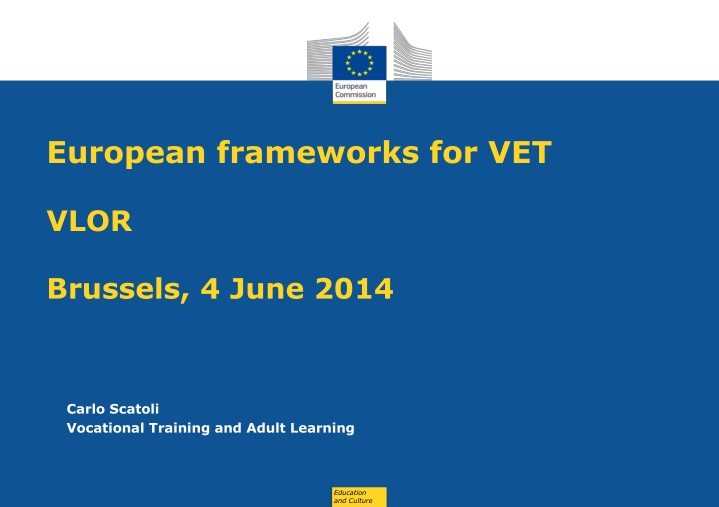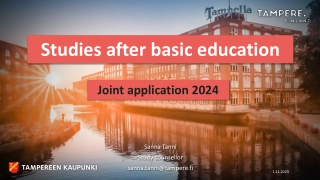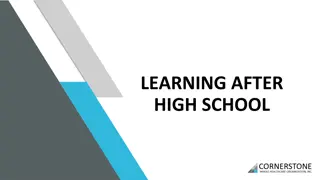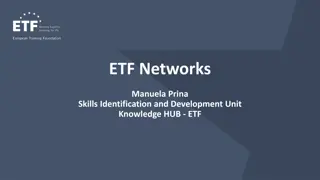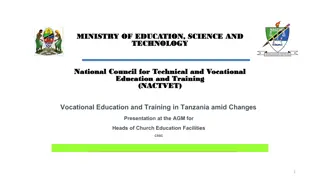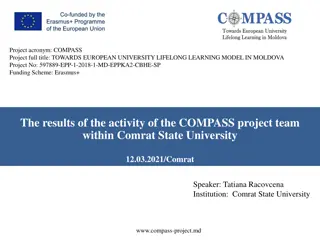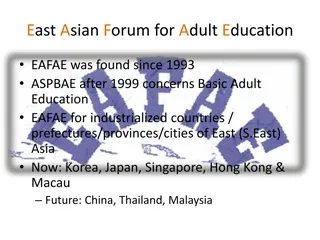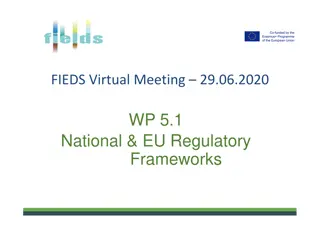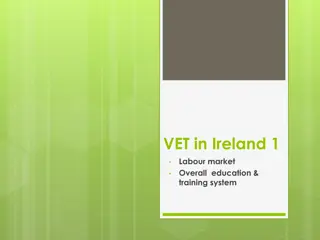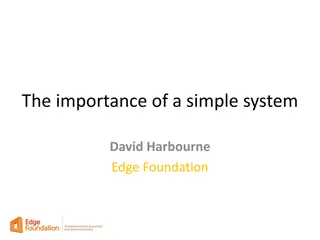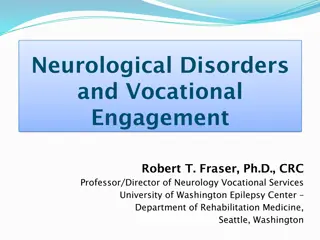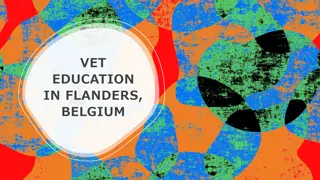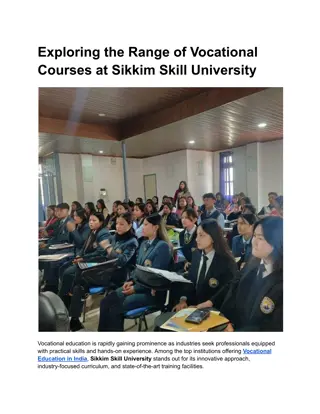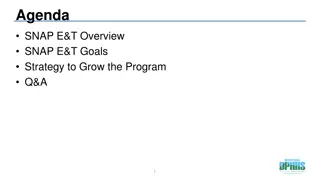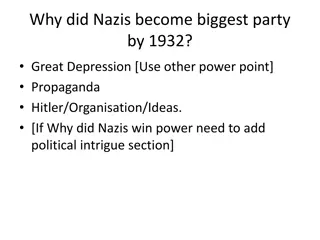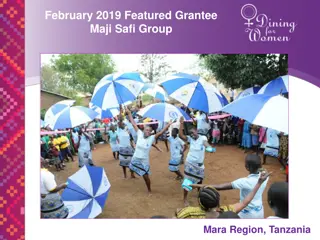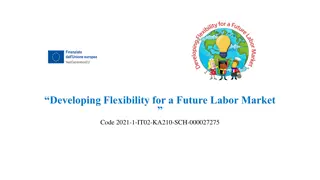European Frameworks for Vocational Education and Training
Comprehensive overview of key European frameworks for VET including the Copenhagen Declaration, Maastricht Communiqué, and subsequent communiqués from Helsinki, Bordeaux, and Bruges. These frameworks aim to enhance transparency, recognition of skills, and quality assurance in VET across European countries, emphasizing cooperation, stakeholder engagement, and alignment with the labor market.
Download Presentation

Please find below an Image/Link to download the presentation.
The content on the website is provided AS IS for your information and personal use only. It may not be sold, licensed, or shared on other websites without obtaining consent from the author.If you encounter any issues during the download, it is possible that the publisher has removed the file from their server.
You are allowed to download the files provided on this website for personal or commercial use, subject to the condition that they are used lawfully. All files are the property of their respective owners.
The content on the website is provided AS IS for your information and personal use only. It may not be sold, licensed, or shared on other websites without obtaining consent from the author.
E N D
Presentation Transcript
European frameworks for VET VLOR Brussels, 4 June 2014 Carlo Scatoli Vocational Training and Adult Learning Education and Culture
2002 The Copenhagen Declaration 30 November 2002 Strengthen the European dimension Improve transparency, information and guidance systems Recognise competences and qualifications Promote quality assurance Lisbon strategy for employment Education and Culture
( 2014 ) European area of skills and qualifications An initiative to boost transparency and recognition of skills and qualifications in education and training and the labour market More intensive coordination of European transparency tools A public consultation: 17 Dec 2013- 15 Apr 2014 A conference: 17 June 2014 Education and Culture
2002 The Copenhagen Process Policy framework Coordination of voluntary cooperation between countries towards common objectives for vocational education and training Education and Culture
2004 Maastricht Communiqu Put Copenhagen tools into practice Improve public/private investments Address the needs of groups at risk Develop progression and individualised paths Strengthen planning and partnerships; identify skill needs Develop learning methods and environments Expand teachers and trainers competences Improve VET statistics Education and Culture
2006 Helsinki Communiqu Improve image, status, attractiveness of VET; good governance Develop further, test and implement common tools by 2010 More systematic mutual learning; more and better VET statistics Take all stakeholders on board Education and Culture
2008 Bordeaux Communiqu Implement tools and mechanisms Raise quality and attractiveness Improve the links between VET and the labour market Strengthen cooperation arrangements Education and Culture
2010 Bruges Communiqu Implement tools and mechanisms Raise quality and attractiveness Improve the links between VET and the labour market Strengthen cooperation arrangements Education and Culture
2010 - 2020 Bruges Communiqu Long-term strategic objectives for the decade (2011-2020) In line with Europe 2020 and the ET 2020 programme targets Intermediary objectives the short term deliverables (STDs) Education and Culture
Tools 2005 European operational frameworks 2008 for 2009 transparency and quality in VET 2009 Education and Culture
Europass CV - Europass Language Passport Europass Skills Passport - Europass Mobility - Europass Certificate Supplement - Europass Diploma Supplement Education and Culture
2013 Europass evaluation. - Effective tool (40 million CV) - Need to better document non-formal and informal learning - Improved synergies with other European initiatives - transparency and recognition of qualifications - career guidance - job matching Education and Culture
The European Qualification Framework for lifelong learning Qualification levels defined through learning outcomes NQF 10 NQF 9 NQF 8 NQF 7 NQF 6 NQF 5 NQF 4 NQF 3 NQF 2 NQF 1 EQF 8 EQF 7 EQF 6 EQF 5 EQF 4 EQF 3 EQF 2 EQF 1 NQF 7 NQF 6 NQF 5 NQF 4 NQF 3 NQF 2 NQF 1 Education and Culture
- 25 countries have related their levels to the EQF levels - Now all European countries have or are developing NQF based on learning outcomes; - EQF/NQF are spreading the learning outcomes approach as concerns qualifications; - Fragile link between EQF/NQF and European quality assurance tools; - EQF is the only full LLL transparency instrument; - There is interest from international qualifications and non-EU frameworks. Education and Culture
EQAVET The European Quality Assurance Framework for VET - Supports countries and VET providers developing their quality assurance systems. - Based on a cycle of four phases (planning, implementation, evaluation and review); each phase supported by quality criteria and indicative descriptors, to be applied at the level of VET system, VET provider and qualification awarding institution. - A toolbox approach: no need to use all of the framework. Education and Culture
EQAVET Education and Culture
EQAVET 2013 EQAVET evaluation, report January 2014. - Not enough attention to the quality of learning outcomes; - Limited application to non-institutional training (C-VET); - The transparency dimension of EQAVET is limited; - Cross sector QA principles and guidelines & sector specific principles and guidelines. Education and Culture
ECVET The European Credit transfer and accumulation system for VET - To support VET mobility; - To promote flexible learning pathways. Credit as assessed learning outcomes; Qualifications made up of units of learning outcomes; Credit points may be used if necessary. - A toolbox approach: no need to use all of the framework. Education and Culture
2014 Copenhagen process: Bruges review Link to ET 2020, Bruges Communiqu requesting new set of short-term deliverables beyond 2014 Review with the aim to define a new set of short-term deliverables to support growth and jobs which should facilitate VET reforms at national level EU context role of VET in overall growth and jobs agenda (Europe 2020) Significance of VET (for both medium and high level skills demand) Education and Culture
Thank you for your attention carlo.scatoli@ec.europa.eu Education and Culture
